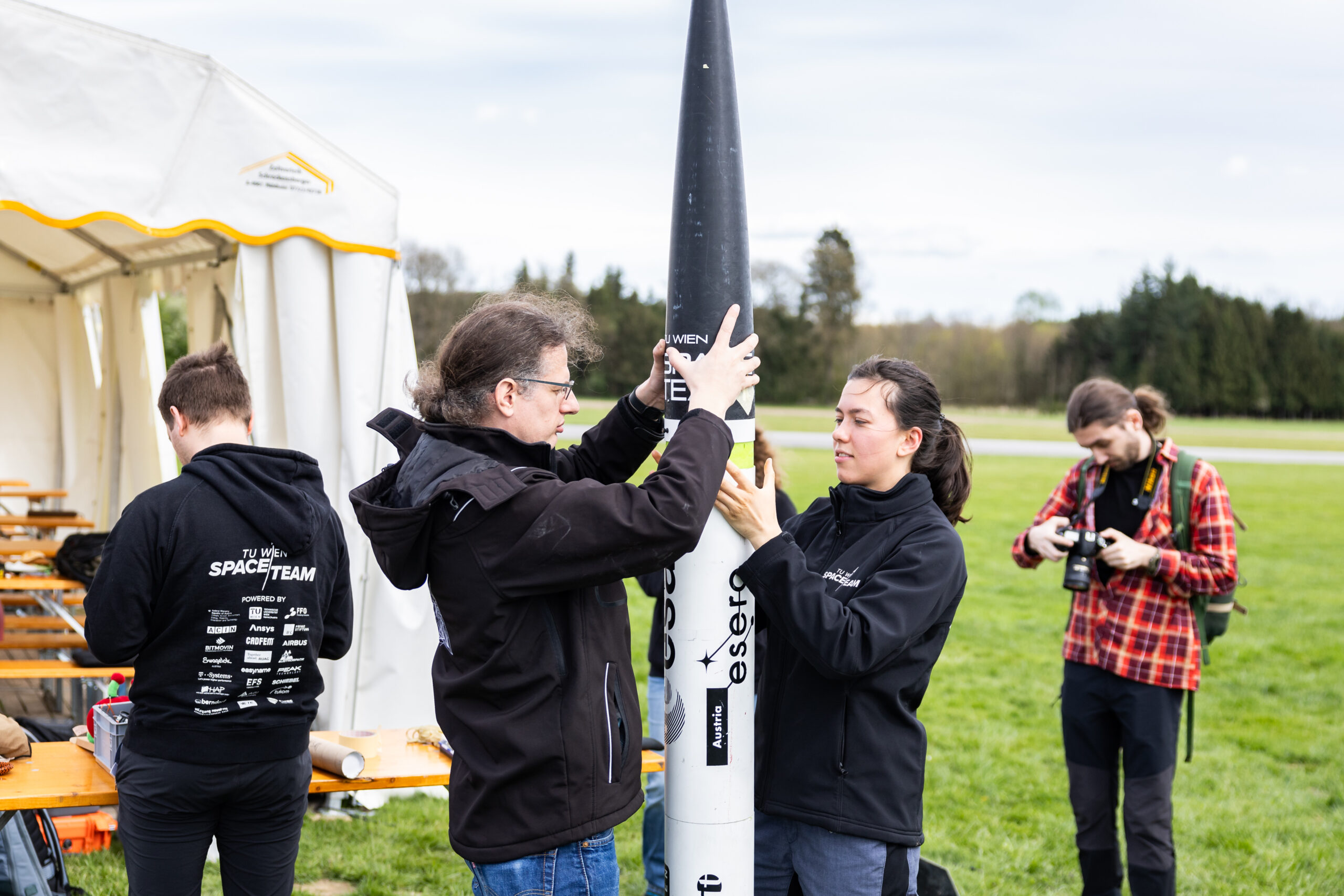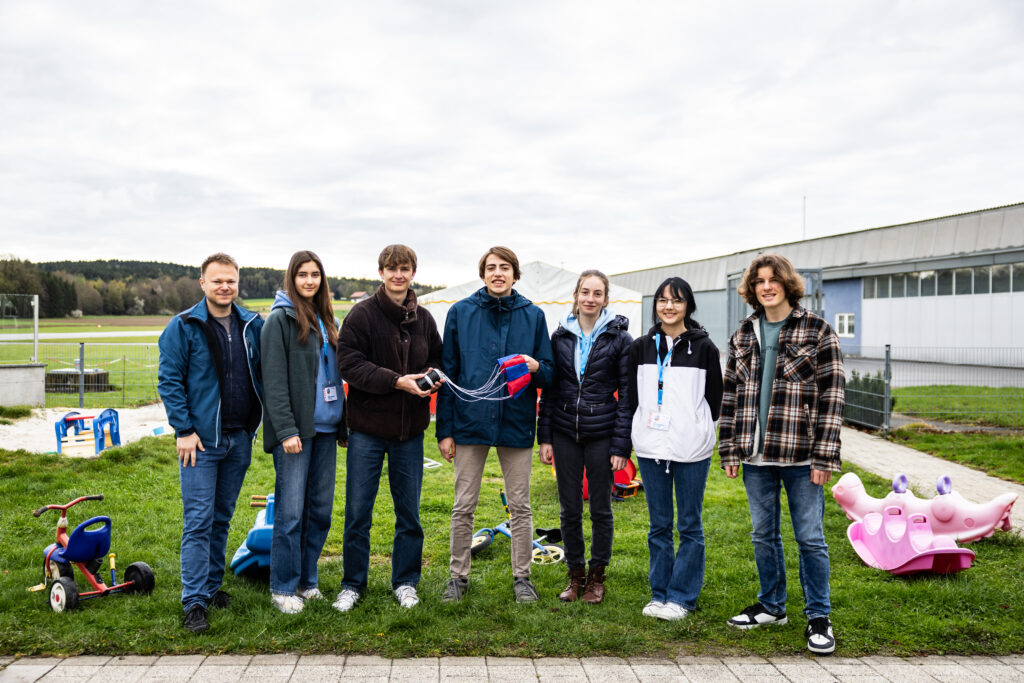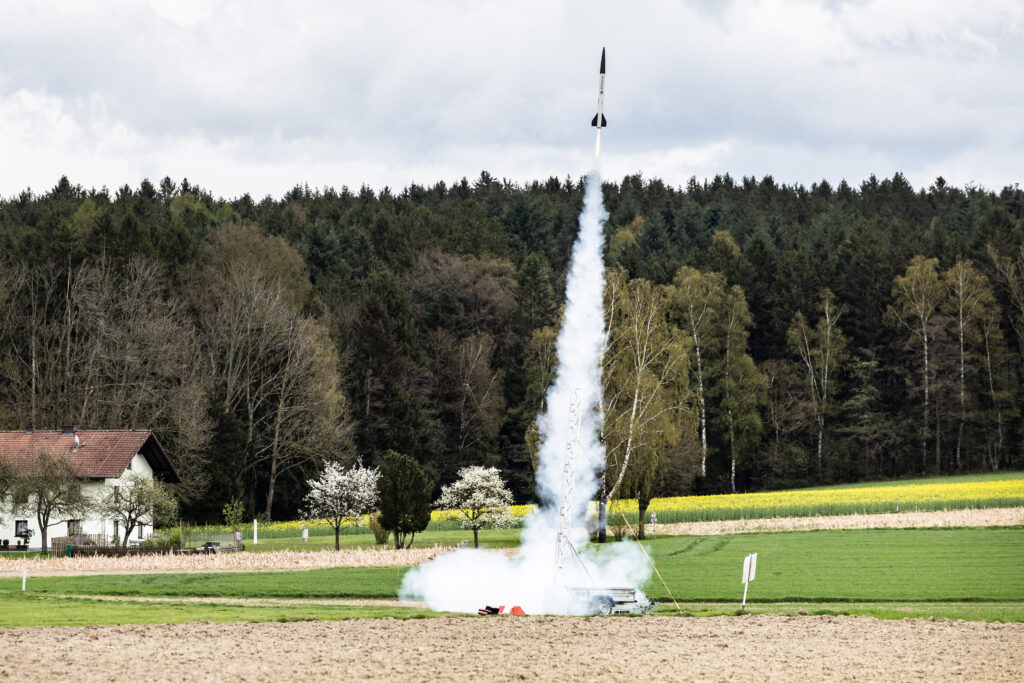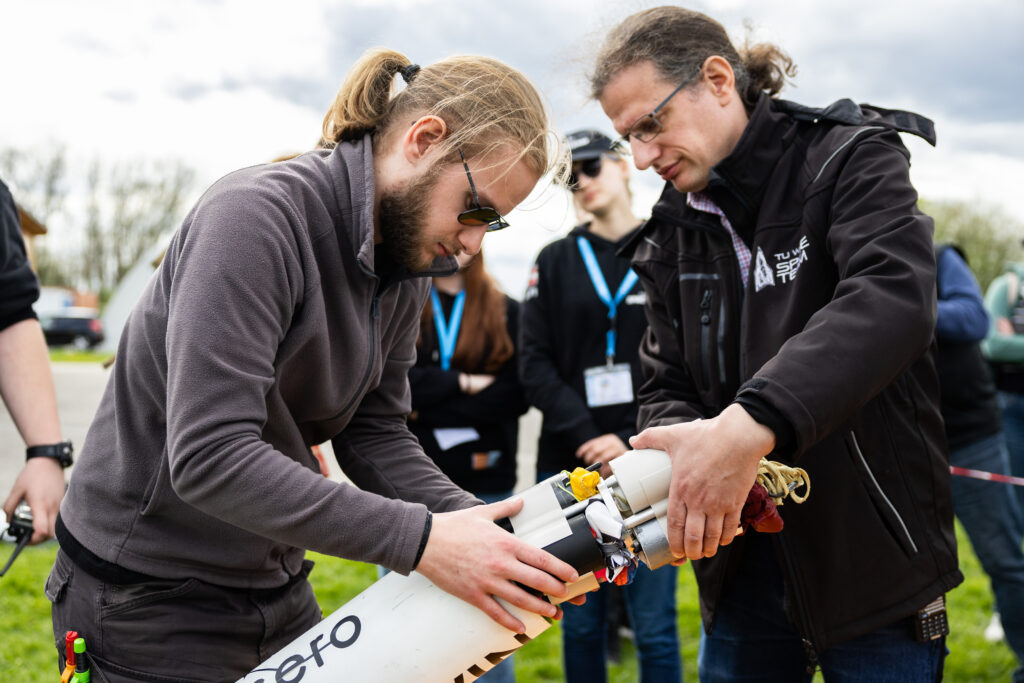- More about the CanSat Austria competition
- More about ESERO Austria
- Photos via Flickr
- Press release as PDF
(Linz, 9.4.2024) A school year with a space mission: 10 teams qualified for the final (3-5 April 2024) of the seventh CanSat Austria competition in the 2023/24 school year and mastered the challenge of launching a functional mini-satellite. The team from the Gmunden Space Agency (BG BRG Gmunden) came out on top and won a trip to the ESA technical centre (ESTEC) in the Netherlands for the “Space Engineer for a day” event.
The Austrian CanSat competition is organised and held annually by ESERO Austria (European Space Education Resource Office), an ESA initiative that has had its permanent headquarters at the Ars Electronica Center in Linz since 2016.
Can-sized satellite for data measurement
The name says it all: ten teams from nine schools and three federal states (Upper Austria, Vienna and Vorarlberg) were challenged as part of the CanSat Austria 2024 competition to develop a satellite (Sat) the size of a beverage can (Can) that meets research standards and can correctly collect and analyse data.
From conception and mission selection, through design and technical test runs, to deployment and scientific analysis, the participants aged 14 and over went through all the phases of a real space project. The finalists came together last week (3-5 April 2024) in Linz and Suben to pit the CanSats against each other.
200 pupils and interested people at the rocket launch in Suben
After the young space engineers had carried out initial drop tests at the Ars Electronica Center to secure their launch authorisation, the participating teams headed to the airfield in Suben near Schärding on Thursday, 4 April. Together with a 2.10 metre long rocket from the TU Wien Space Team, the CanSats were transported to an altitude of 500 metres and ejected. The event was attended by around 200 pupils and other interested parties, who cheered on the participants and took part in space workshops themselves.
Data acquisition for primary and secondary missions
During the sink flight, each CanSat showed its potential: the common “primary mission” of all mini-satellites was to measure temperature and air pressure and transmit them to the ground station. In addition, the actual ejection height and drop speed had to be determined from the air pressure values and a temperature profile had to be created.
The “secondary mission” was selected and planned individually by each team: The winning team from the Gmunden Space Agency simulated a landing on another planet. The focus was on energy generation using solar cells. When building the CanSat, the students paid particular attention to the orientation of the solar panel using a rotating mechanism – and ultimately topped the leaderboard.
New additional prizes for four teams
In addition to the main prize, the jury awarded three additional prizes on Friday, 5 April: The prize for “Best Technical Achievement” went to the Mission CanSat team from HTL Rankweil, while the prize for “Best Public Relations” was shared by the Daidalos and Aiolos teams from BG/BRG/BORG Schärding. The prize for “Best Scientific Mission” went to the EFMK Space Engineering team from BRG Steyr, who were able to detect and identify bacteria and pollutants at an altitude of 500 metres.
Regardless of the results, all finalists were invited to visit an Austrian company dedicated to space exploration – including PEAK Technology, Beyond Gravity Austria, IWF Graz, Fotec and the Technisches Museum Wien.
About ESA
The European Space Agency is dedicated to the peaceful exploration and use of space for the benefit of mankind. Founded in 1975, today 22 countries participate in ESA to push the boundaries of science and technology and promote economic growth in Europe.
About ESERO Austria
On being commissioned by the European Space Agency ESA, ESERO supports teachers in using the fascination of space to get young people interested in STEM subjects. ESERO Austria has been active at the Ars Electronica Centre Linz on behalf of ESA and FFG/bmk since 2016. In addition to competitions for pupils and teaching materials, ESERO offers further training for teachers.




